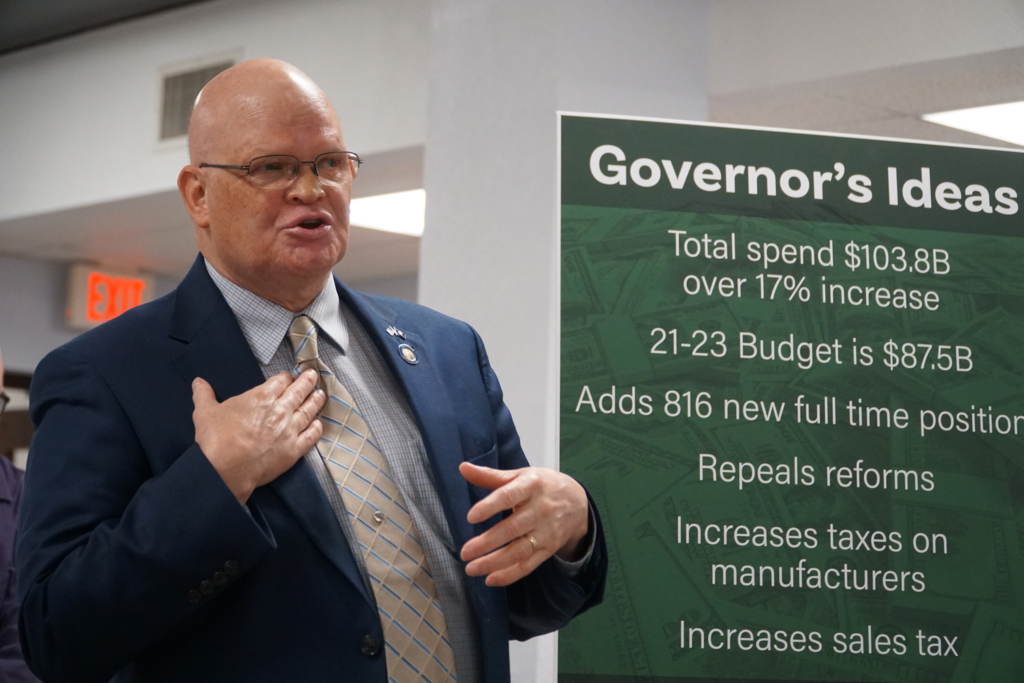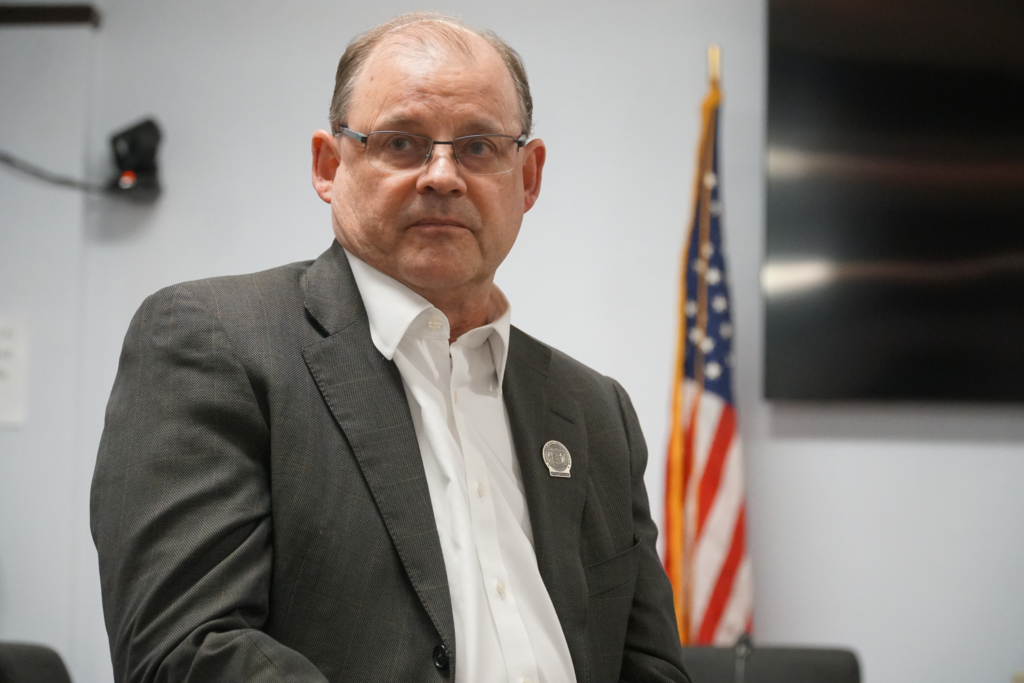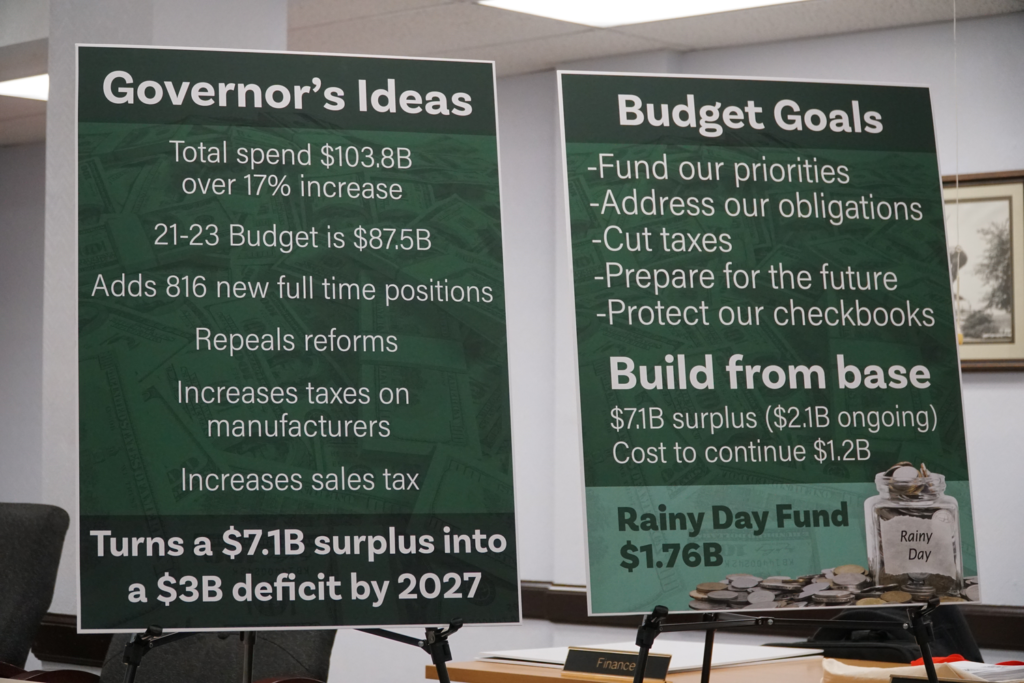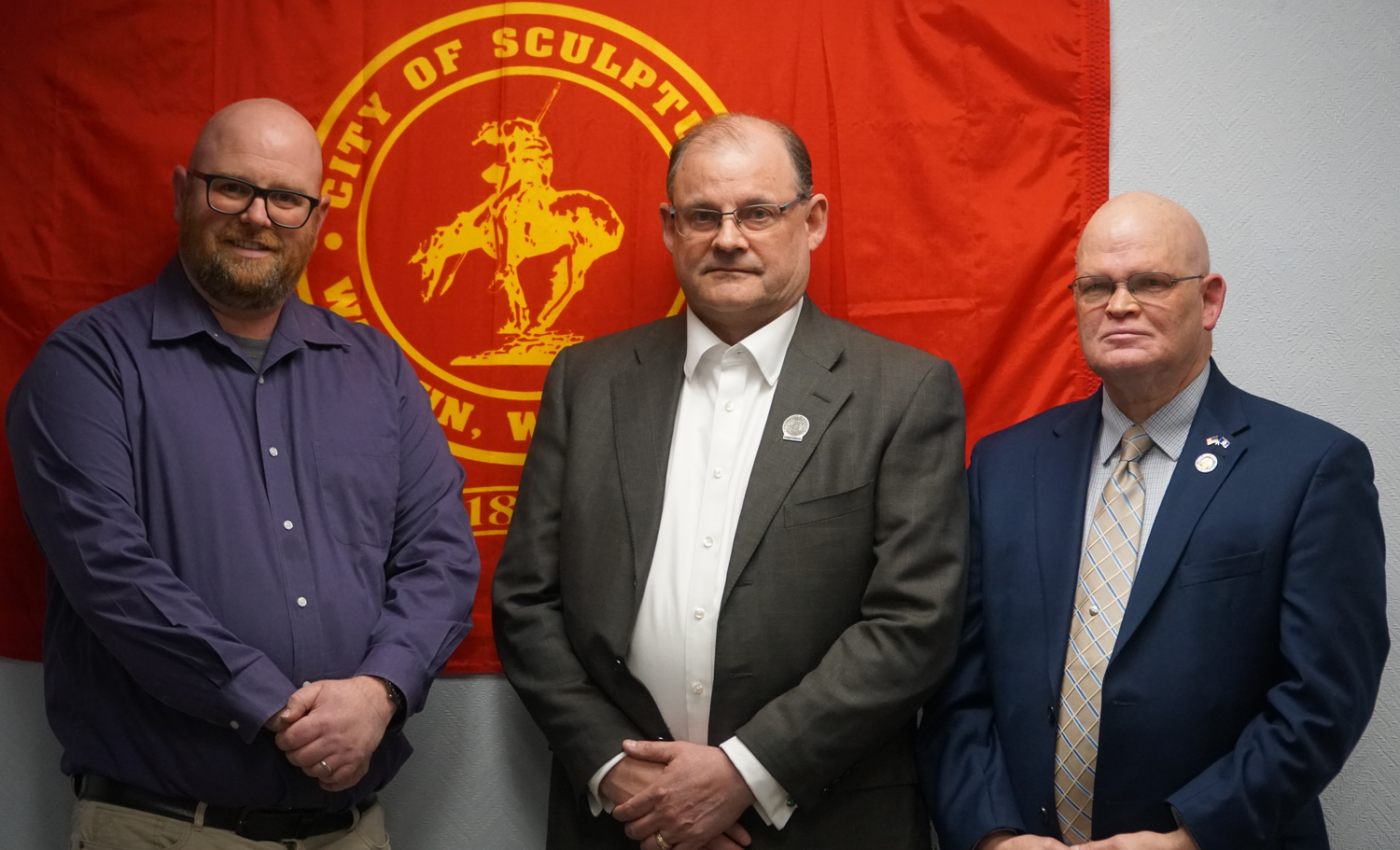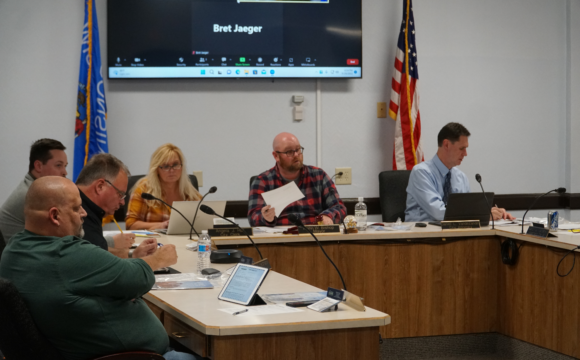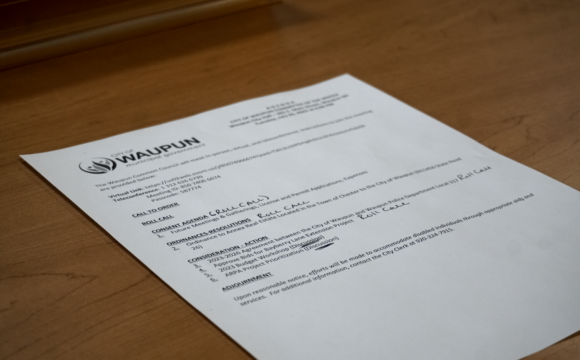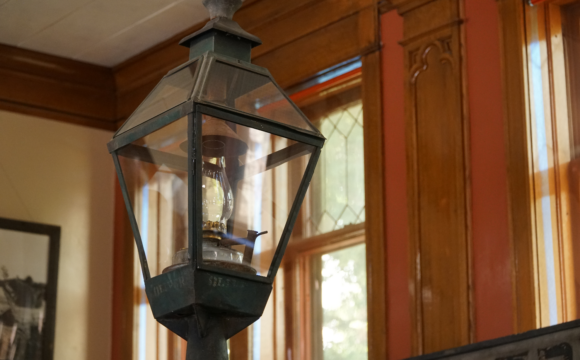WAUPUN — Waupun Mayor Rohn Bishop invited regional representatives, District 18 State Senator Dan Feyen and District 53 State Assemblyman Michael Schraa, to come to Waupun to explain the state budget and answer questions from locals about state funding.
After a brief introduction from Mayor Bishop, Senator Feyen opened by explaining the budget process. State budgets are generally written “from base,” meaning they take the previously passed budget and add or adjust items based on the current needs.
For illustration, Feyen brought a copy of the current budget as proposed by Governor Tony Evers. Made up of 1,815 pages—double sided—the proposed budget is over ten times the size of the previous Republican-passed budget which had been 175 pages.
Schraa explained that the budget process takes place every two years, starting with a proposal from the governor which gets condensed by the Fiscal Bureau. In the months following, state agencies come to the Joint Finance Committee to justify their funding.
“There are some good ideas in this budget, but there are also bad ideas in my opinion,” Feyen said. “The total spending in the Governor’s proposed budget is almost $104 billion dollars. The 2023 budget was $87 billion. That’s a massive increase, it’s an almost 18% increase.”
Feyen described the sort of additions to the budget, including creating more state government jobs, increasing taxes, and making use of the current state surplus.
After their presentation was complete, Mayor Bishop opened up the session for questions from the audience. This included members of the City Council Pete Kazcmarski and Dan Siebers, Waupun Fire Chief BJ DeMaa, and a handful of locals.
BJ DeMaa asked about extending PTSD coverage to Fire volunteers and EMS from the state regarding a bill that only gives full time Fire Department employees coverage. Feyen said that he was a cosponsor to the original bill and acknowledged the oversight, saying he would work to solve it. Schraa also expressed support, with Feyen noting that the bill would likely receive bipartisan support.
Jason Whitford, a local who’s been adamant about the issue, asked about MSP payments from the state concerning the Department of Corrections facilities in Waupun, expressing his concerns about whether Waupun is receiving everything that is owed from the state for serving the prison system.
“I’ve done a lot of research on this,” Feyen said. “Right now Waupun receives approximately $54,000 a year that is tied to having a prison which is not paying property taxes.” Feyen described the circumstances behind how cities receive MSP payments due to having state-owned property in their cities, which can include prisons, universities, and other state-owned buildings.
“Waupun is currently being paid at 38.1%, and it has been at that level for quite some time,” Feyen continued. “If you fully funded everything it would be $141,000. We’ll take a look at it, as I represent Oshkosh and Waupun, but we will not get to 100%.”
City Administrator Kathy Schlieve asked about the state’s plans for shared revenue and loosening municipal levy limits due to increasing costs. The representatives also discussed concerns over whether taxes from rural areas are sent to support programs in Milwaukee. Alderman Pete Kaczmarski also asked the representatives about road transportation aid for the City. Schraa discussed the gas tax, and bills imposing fees on electric vehicles which don’t pay into the gas tax, currently only an extra 75$ upon registration.
Another local asked a question about Evers’ budget regarding more employees to state agencies, Feyen said they’re mostly DEI (Diversity, Equity, and Inclusion) and other agencies. “There are currently 70,000 employees of the State of Wisconsin. We don’t need more employees when there’s so many openings,” Feyen said. “Maybe if we’re at full employment and they’re still working overtime.”
City Administrator Schlieve then asked about the housing market and the state’s current tax increment laws. On the day of the meeting, only two houses on the market in Waupun are below $220,000 asking price. “We need a lot more flexibility in the tools that we have for economic development and we need the ability to support housing development,” Schlieve said. “It is critically important if we’re going to fill those DOC jobs. I can’t emphasize enough how important it is for the health of our communities.”
Schraa discussed the recent developments in the state assembly, with State Assemblyman Rob Brooks “taking the reins” in the assembly on workforce housing development, emphasizing the difference between workforce housing and low-income housing.
Kaczmarski asked about whether there’s been any consideration for the City of Waupun to purchase the land south of the prison, of which there wasn’t anything explicit that either Schraa or Feyen had heard. Schraa also addressed the rumors regarding closing Waupun Correctional Institution due to its age, which he said wasn’t likely to happen in the near future.
“I think there’s a lot more appetite for closing an older facility today than there was even a couple years ago,” Schraa said. “I would never advocate for that, as I know how important it is for the City of Waupun. At some point something might have to be looked at, but if there’s going to be a closure I would say it’s more likely that it would be Green Bay. But Tony Evers is not going to sign off on building a new prison.”
Schraa said that building a new prison facility today would cost approximately $750 million.
